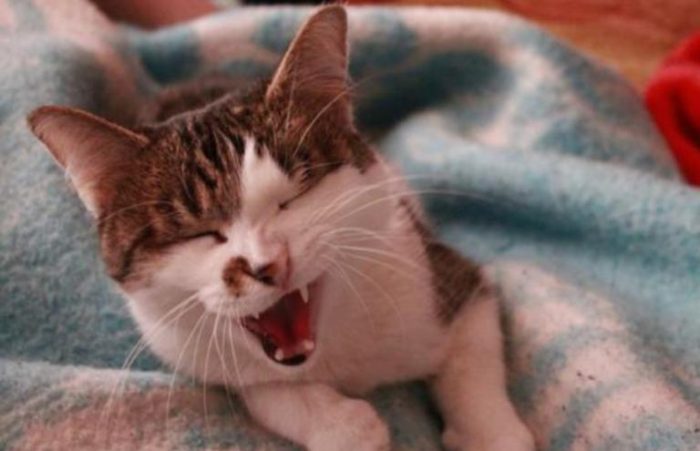Why is my cat sneezing all the time is a regular question on the lips of many pet parents, especially the new ones who have not had much experience with the members of the feline population? However, they should know that when a cat sneezes occasionally, it is considered normal and nothing to worry about. In the same way as humans, feline sneezing is an explosive air release via the mouth and nose – often the response of the body to irritants present in the nasal passages.
Feline sneezing can be caused by mundane things like movement and excitement, but if sneezing becomes persistent, it may be an indication of something more serious, requiring the attention of a professional. In this write-up, we are set to bring answers to the question of why is my cat sneezing a lot.
Table of Contents
Why is my cat sneezing a Lot?
This question has several answers, from the most common reasons to the complex ones that won’t go away until you get your furry companion over to the veterinarian. Once the vet receives the sneezing cat, he will conduct a physical exam and run all necessary tests to ascertain the root cause of the sneezing. More often than not, the cause may be simple like excitement, but when the underlying cause is the more serious type, the vet will know what cause of action to take. So, why is my cat sneezing? Here are the possible causes.
9 Causes Of Constant Cat Sneezing
A simple, gentle tickle
A small tickle in the nose of your feline friend can be caused by dust or a mild chemical irritant, giving rise to reflexive sneezing. The inhalation of ordinary pepper can also tickle a cat’s airways and cause a sneeze.
Respiratory Infection
Some uncommon fungal infections can still lead to sinus disease resulting in nasal inflammation. A cough can accompany viral respiratory infections and even more frequently, excessive tearing, as well as a discharge that has accumulated in the cat’s eyes. Upper respiratory infections are most common among the younger felines, especially those reared in animal shelters. Timely and complete vaccination can be effective in eliminating these infections.
There are several viral infections that can lead to feline sneezing, they include;
Feline herpes virus
Herpes can easily infect cats that are exposed to already infected cats. A flare-up can occur due to stress, which also facilitates transmission to other kitties. The disease cannot be contracted by humans.
Feline calicivirus
This is a highly contagious virus among felines, the severe cases can lead to pneumonia, but the most common issues are mouth ulcers, and the respiratory tract can be affected.
Other infections like feline infectious peritonitis and FIV or feline immunodeficiency virus may also lead to sneezing in cats.
Chemical irritants
Occasionally, chemical fumes and noxious smells from various solvents can cause inflammation in the membranes of the sinuses and nose. The body gets rid of these irritations through sneezing. Some felines display sensitivity to inhaled perfumes, chemicals, and tobacco smoke.
Foreign bodies
When foreign bodies like blades of grass find their way into a cat’s nasal cavity, it causes irritation and consequently leads to nasal infection if not promptly expelled.
Dental disease
Dental diseases that involve root infections can engender sneezing. A feline tooth infection can lead to bacterial build-up in a cat’s nasal sinus, resulting in sneezing and inflammation.
Allergies to pollens
Though they are less common among cats, pollen allergies are not unheard of and can be the reason your cat keeps sneezing.
Intranasal vaccines
Vaccines made to fight respiratory infections lead to sneezing after their administration. This type of sneezing will resolve without medication.
Ordinary sneezing may not require medication but when it is accompanied by symptoms like eyes and nose discharge, mucus and blood in the nose, loss of appetite, and lesser activity level, then the vet needs to come in.
What to do About Cat Sneezing
Tender Love and Care
A cat that has an upper respiratory infection can be relieved by the following steps:
- Warm some canned food and entice the cat to eat.
- Supply sufficient clean drinking water.
- If the feline is a kitten, a vet needs to check it immediately.
- Warm moist cotton can be used to wipe nose discharge and clean the cat’s face.
Seek Professional Help

A visit to a vet will be necessary in extreme cases of canine sneezing; the vet will come up with a prognosis after conducting a physical exam and necessary tests. Cats that have become averse to eating can be fed intravenously at the vet’s clinic – this ensures that proper nutrition is administered. Other possible complications can be revealed by blood tests and x-rays. Cases of bacterial infection can be treated with antibiotics.
Read Also: How Do I Know If My Cat Has Whiskers Fatigue?
How to Prevent Sneezing in Cats
- If constant sneezing is the only symptom that you have observed in your furball, then, the solution can be in cleaning its environment up and making some changes.
- The use of things like scented laundry detergents, air fresheners, and perfumes should be halted. Smoking in the house should equally stop to see if there will be a difference.
- Take great care with the use of disinfectants, especially if your furry fellow licks its paws after walking on the sprayed surface. Some disinfectants are made with substances that can be toxic to felines.
- Recommendations are that you use about ¾ cup of regular bleach with one gallon of water for cleaning litter boxes and other surfaces in the house. Besides, it brings a welcoming scent; thus, air freshener will be unnecessary.
- After cleaning with a bleach solution, or any other cleaning agent of your choice, rinse the cat’s litter box with fresh water. The same should be done to all the other kitty-frequented surfaces.
- Ensure that the kitty’s litter is not the type that throws up too much dust as your feline friend scratches inside the box. This is capable of aggravating allergic problems in humans and felines.
- We hope this has brought some useful answers to the question of why is my cat sneezing a lot. However, a sneezing kitten should be under close observation for some days and if other symptoms of upper respiratory infections occur, the vet should be brought in immediately.
